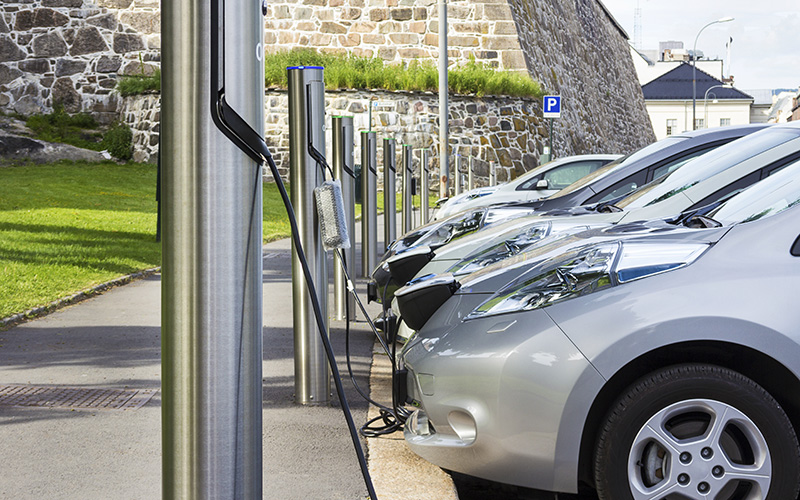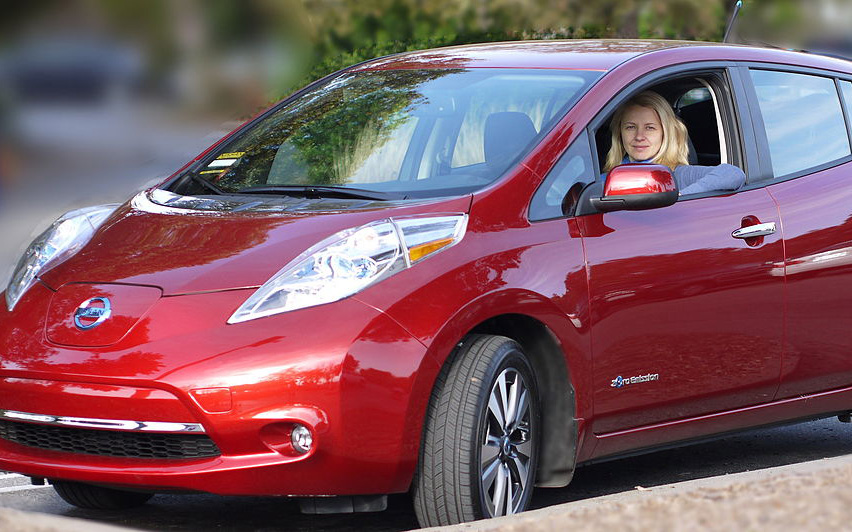
Are you unsure about whether an electric car is the right choice for you? You’re not alone. Shopping for a new car is hard enough even without taking the time to learn about a new option. Plus, there is a lot of confusing information out there about electric cars. What’s a responsible car shopper to do?
To help improve your car-shopping experience, we have compiled, and busted, some of the most prevalent myths about electric vehicles (or “EVs”). Don’t let these misconceptions prevent you from experiencing the cost savings, environmental benefits, and the pure fun of driving electric!
Myth #1: Electric cars are too expensive.
BUSTED: Electric cars are among the most affordable car options on the market.
There is no need to choose between a wallet-friendly and planet-friendly car. All in all, electric vehicles are a smart choice for the cost-conscious consumer.
There are many electric models with a starting price that is below-average or relatively average for light vehicles. For instance, the world’s best-selling electric car, the Nissan Leaf, lists for less than $30,000, as do the Chevrolet Spark EV and Volkswagen e-Golf. The Kia Soul EV and Chevrolet Volt both list for less than $35,000. The Chevrolet Bolt (MSRP: $36,620) and Tesla Model 3 (MSRP: $35,000) are coming soon, too. Plus, there are used EVs available at discounted prices.

What’s more, consumers can take advantage of federal and state EV incentives to sweeten the deal. Electric vehicle purchasers are eligible for a federal tax credit of up to $7,500, and many states offer additional incentives on top of that. For instance, Massachusetts and Rhode Island each offer a rebate of up to $2,500 for an electric car purchase, and Connecticut offers a rebate of up to $3,000. (Additionally, Massachusetts is soon unveiling a pilot program to make EVs more viable for low-income consumers.) Vermont and Connecticut EV drivers also receive discounted registration fees.
On top of these rebates and incentives, note that electric cars are cheaper to operate and maintain than a gasoline-powered vehicle – which is likely to save you thousands of dollars over the car’s lifetime. Electric car motors have fewer moving parts than a combustion engine, which translates into lower maintenance costs. Plus, imagine never having to purchase gas again! On average, the total cost to charge an EV is only $2 to $4 – significantly less than a tank of gasoline. Electric cars save families money with every drive.
Myth #2: Charging an electric car is a hassle.
BUSTED: It is simple to charge at home, and New England has some of the nation’s most extensive EV charging infrastructure.
Most EV drivers plug in at home and let their car charge overnight. Plugging in is easy: it takes only seconds, and you can use any ordinary electric outlet, just like charging your cell phone. When you wake up the next morning, your car will be charged and ready to go. Special equipment allows for quicker charging with higher voltage. Several states offer incentives for installation of such equipment. For instance, Massachusetts and Connecticut offer grants to businesses to reduce the cost of installing workplace charging.
If you are out and about and want to charge, fear not – New England has a sizable and growing network of refueling options for electric cars, with more charging options being constructed all the time. Many shopping centers, workplaces, and parking garages offer charging for free or at low cost. There are even “fast chargers” going in at Mass Pike service plazas that can fully charge an electric car in 20 minutes; that’s just enough time to stop at the restroom and grab an iced coffee.
Myth #3: Electric cars are not reliable, especially in cold New England weather.
BUSTED: Electric cars are more dependable than gasoline-powered cars.
Consumers may worry about how far electric cars can drive between charges, but the most popular electric cars have ranges that far exceed our typical need. The average car trip is less than ten miles, and most of us drive less than 30 miles per day. (Monitor your mileage for a few days and see for yourself!) By comparison, the Nissan Leaf’s range is 107 miles, and the range of the Chevy Bolt is 200 miles. That’s likely enough range, for example, to take you from Boston down to the Cape for a beach weekend, or from Portland up to Sunday River Ski Resort on a single charge. Should the car battery run out, you just plug it in to charge it up again. Still worried? The Chevy Volt comes equipped with a gasoline-extender and can run on gasoline if necessary.
Be assured, too, that today’s electric cars are safe to drive in cold New England winters. New Englanders such as Vermont’s gold-medalist snowboarder, Ross Powers, are buying, driving, and loving their EVs in cold weather! It is true that all cars are somewhat less efficient in the cold (including gasoline cars). In the case of EVs, cold weather can mean that you use additional power to warm up the car’s interior, for example. But even in cold weather, the range of an electric car is still more than enough for many drivers, especially for newer, long-range EVs. Take a cue from drivers in even colder climes than New England. Electric cars make up approximately 20% of all new cars sold in frigid Norway, and they are popular in snowy Canada, too.
Electric car battery technology is very durable and is continually improving as costs fall. A recent study demonstrated that current batteries are likely to retain functionality for 10–12 years of driving.
Furthermore, as noted above, EVs cost less to maintain over their lifetime. Electric vehicle brakes also have a longer life because the motor helps to slow the car down by storing recaptured energy in the car’s battery (cool, right?). For all of these reasons, electric cars are a dependable and practical option for many consumers.
Myth #4: Electricity generation is dirty, so there is no real advantage to switching from gasoline.
BUSTED: Electric cars are much better for the environment and public health.
With the current electricity mix in the Northeast, a car fueled by electricity will emit 50–70 percent less greenhouse gas pollution than a comparable gasoline-only car. This is good news for our climate. Electric vehicles are critical to helping New England states meet their ambitious climate pollution reduction goals.
Additionally, electric cars have little or none of the tailpipe emissions from gasoline-powered cars that have been linked to asthma, heart attacks, and premature death. In other words, more EVs means fewer emergency room visits, hospitalizations, lost workdays, deaths, and healthcare costs.
Even now, many consumers have the option to power their homes – and thus, charge their EVs – with 100 percent renewable energy. As New England’s electricity system continues to become greener with more power from renewable energy resources such as wind and solar, the public health and environmental benefits of driving electric will only increase.
Myth #5: I do not own a car, so there is no reason for me to care about electric vehicles.
BUSTED—Having more EVs on our roadways is in everyone’s interest.
Even if you do not plan to own an EV yourself, you can still benefit from more EVs on our roadways. Electric vehicles are better for the climate, which is good news for everyone. Anyone who cares about protecting our region from the impacts of climate change or reducing our dependence on imported oil should support EVs.
Replacing gasoline-powered vehicles with EVs also improves air quality wherever electric cars drive. Better air quality means fewer health complications, fewer premature deaths, and cost savings for everyone.
Additionally, electric cars have the potential to provide important services to support our electricity grid. When car batteries are plugged into the grid, they can provide energy storage and help to moderate supply and demand to keep the grid functioning smoothly. A more efficient, resilient grid supported by EVs can thereby benefit all families and businesses.
What’s more, buses, trains, and ride-sharing services can be EVs, too! There are already electric transit buses on the roads in Worcester and the Pioneer Valley, with electric school buses coming soon. CLF will continue to advocate greater investment in electrified transit for New England. All communities can and should benefit from transportation electrification.
A little-known California regulation has the potential to bring even more electric vehicles to local dealerships in New England – but we have to tell regulators that we are interested in driving electric! Sign this letter to the California Air Resources Board to help bring more EVs to New England.



